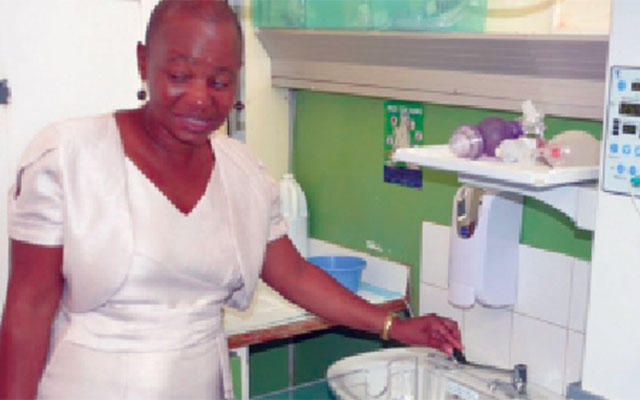Maternal, perinatal deaths alarming

Tsungai Chekerwa-Machokoto: Gender
The national statistics of maternal and perinatal mortality in Zimbabwe are alarming.
However, it is comforting to know that since the 2011 statistics, the combined efforts by different organisations that have been put into decreasing the mortality rates have actually been successful.
The ratio has gone down significantly. In fact, in August 2014, Unicef released statistics suggesting that Zimbabwe’s maternal death rate had dropped by 36 percent since 2009, to 614 per 100 000 live births from a whopping 960 per 100 000 live births.
Maternal death is the death of a woman while pregnant or within 42 days of termination of pregnancy while perinatal mortality is the death of a new born up to the fourth week of their birth.
The main clinical causes of maternal deaths worldwide are haemorrhage (25 percent), sepsis (15 percent), preeclampsia/eclampsia (12 percent), abortion (13 percent), and obstructed labour (8 percent).
Haemorrhaging, or excessive bleeding, can happen at any time during pregnancy and can be related to abnormalities in placentation, trauma, drug use, medical comorbidities, medical mismanagement, coagulopathies (blood disorders), ectopic pregnancies, uterine atony (failure of the uterus to contract after delivery), retained products of conception, lacerations, and surgical complications.
It is said that 85 percent of pregnancies are delivered smoothly while only 15 percent experience problems. It is within this 15 percent that complications arise.
If the medical facility and the staff are not prepared to deal with the emergency then the woman’s life and that of her baby are vulnerable.
I have an aunt who was told at a check-up that she had blood pressure that was so high that she had to rest immediately.
Since she wasn’t in any pain and so she decided to walk to her sister’s house that was just a few minutes from Medical Chambers in Harare.
Her sister lived just across the road from the Medical Centre so she thought it would not do any harm to walk there and rest in the flat.
To cut the long story short, her decision resulted in her becoming a statistic on still birth.
That incident was traumatic to the whole family, but it was the day I made a decision to know more about such issues so that I can help women in similar situations.
I came across an NGO named Ark Zimbabwe that is involved in promoting maternal and neonatal health.
Ark has a programme that is entirely dedicated to saving the lives of both the mother and the child.
They launched a programme called Safe Arrivals, a few years ago, and their vision is “A Zimbabwe where no woman loses her life while giving life, and no child loses its life before it has begun”. What a noble cause I thought to myself when I saw that.
An entire branch in Zimbabwe with the sole purpose of saving lives? Impressive!
I had the privilege of finding out exactly how they save lives. Ark trains clinical officers to handle emergencies should they arise during child birth.
Clinical officers are midwives who receive further training to be able to provide emergency surgery mainly in rural districts.
The more clinical officers are trained, the more lives can be saved. In August, a graduation of clinical officers will be conducted at Chitungwiza Hospital.
Ark also trains nurse anaesthetists on critical care that enables them to save life through Caesarean Sections especially in rural areas.
They also equip hospitals with equipment that benefit maternity wards.
They conduct different trainings from Quality Improvement, Infection Control to all the other areas that have a hand in promoting safe arrivals of babies and keeping mothers alive.
This week, on Wednesday, Ark had a Handover Ceremony at Mpilo Central Hospital in Bulawayo where they presented their donation to the hospital and the community.
It costs a lot of money for the hospital to buy finished products for infection control. So what Ark did was to buy the ingredients that are used to make sanitising solutions.
The organisation bought bottles to pack the sanitisers in after they are mixed by the pharmacists. At the Handover Ceremony, a demonstration on how to mix the hand sanitisers was done.
Ark facilitated renovations of plumbing works in the maternity wards in a spectacular way including replacing ordinary taps with elbow taps for infection control and provided new linen for the ward as well.
Infection control is a major milestone in dealing with maternal and perinatal mortality and the Safe Arrivals programme has achieved that by providing the equipment needed to sanitise the maternity ward.
It was a very moving occasion indeed and the community will appreciate the renovations made to Mpilo Hospital. Ark is headed by Dr Vonai Teveredzi who is the Country Director.
It is easy to appreciate her efforts towards eradicating the intricate details that affect mortality rates in Zimbabwe.
I have had the personal privilege of seeing Dr Teveredzi in action during meetings and I was impressed.
The woman has a wealth of information at her fingertips. It is either probably because she is a woman that she understands the importance and need of emergency help during childbirth or because she is a medical doctor, or maybe just pure passion to help women and children. Whatever it is, the self-driven woman is just amazing.
Ark did a similar event at Harare Hospital. They adopted the maternity ward and did a shocking makeover of the pre-labour ward and the actual labour ward.
The showers were replaced, the plumbing was redone, and they installed new sinks and taps as well as also sanitising stations.
They refurbished the curtains that were there and ensured privacy and dignity of birthing mothers by putting new curtains to mark demarcations in the ward.
Ark Zimbabwe has done a phenomenal job at Harare Hospital and the transformation has really benefited both the patients and the staff there.
They continue to train people from the auxiliary staff to the highest management, helping them realise that Safe Arrivals are possible through team work.
It is therefore critically important that the women realise the role that they have to play in assisting the cause of organisations like Ark and do their part.
Going for antenatal visits as recommended by the Ministry of Health and Child Care is the best way of ensuring that you save your own life and that of your baby.
Once women follow instructions given to them by health professionals, it becomes easy to detect and manage symptoms that could be life threatening.
It is at hospitals and clinics that women with high blood pressure get medication and advice on lifestyle changes, anaemic women are given medication to increase the blood in their bodies and also advice on what to eat.
HIV positive women are able to start taking PMTCT drugs that stop the mother from transmitting the virus to their unborn babies.
Going for those visits could be the sole reason that could save a life.
It is sad to note that only a few women go for these visits according to the monitors and evaluators at Ark despite the services being free of charge at local government clinics.
Women should really take efforts to help themselves by going for their antenatal visits.
Women, upon confirmation of pregnancies should read as much as they can about pregnancy and childbirth.
This is better than focusing on shopping for the baby because without knowledge on how to help yourself, you might not be able to have the baby, or you might not be around to enjoy the company of your baby.
Lack of awareness about the causes of maternal and perinatal mortality can cause women to ignorantly do harmful things to themselves.
If death can be avoided, lets grab the opportunity. We should as women show our appreciation of organisations like Ark that channel funds towards our well-being.
This is the least we can do to complement the effort of such organisations.
Knowledge + efforts + funding = saved lives and that makes it all worth it!
The writer, Tsungai Chekerwa-Machokoto, can be reached on [email protected]. For more information about Ark Zimbabwe you can visit them on arkonline.org








Comments